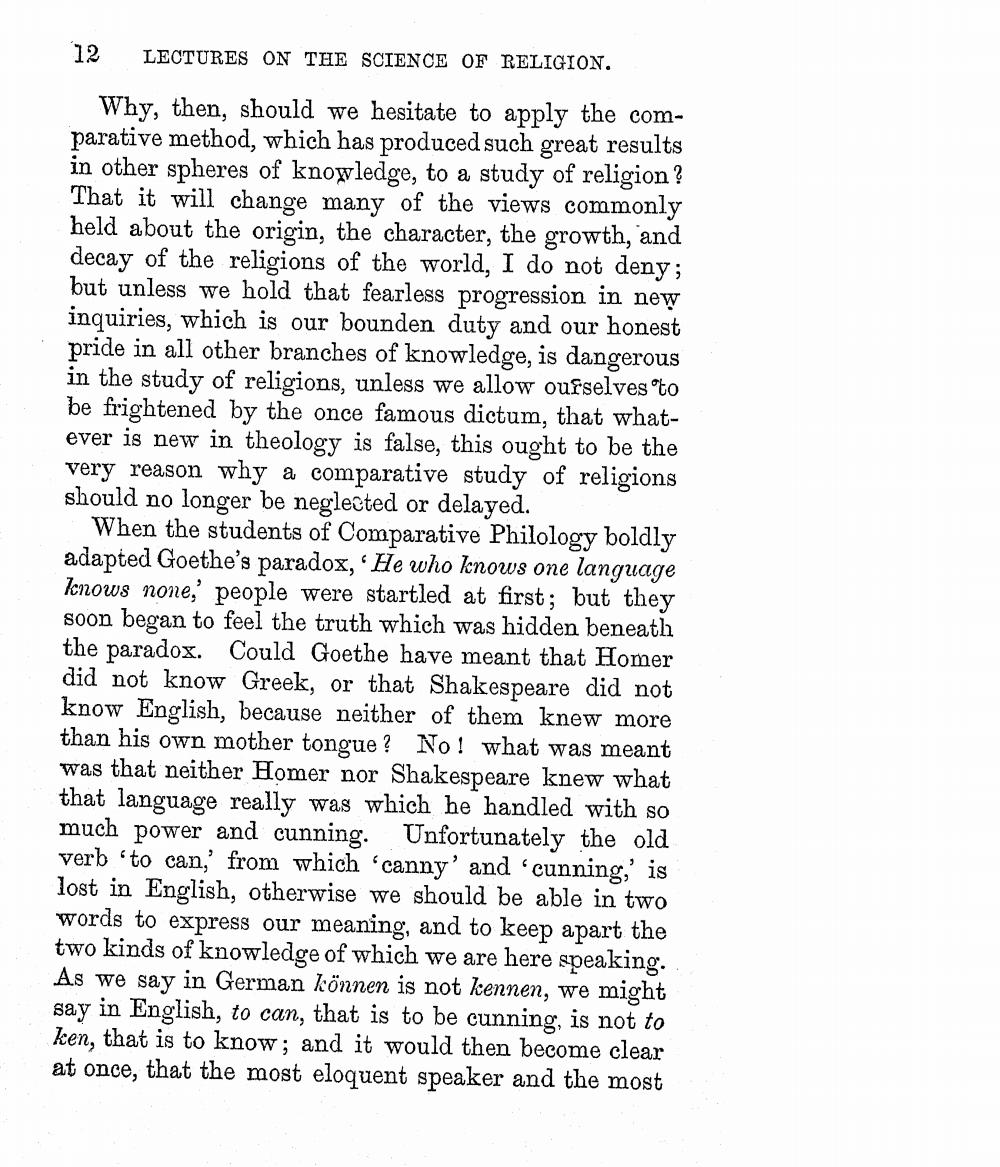________________
12
LECTURES ON THE SCIENCE OF RELIGION.
Why, then, should we hesitate to apply the comparative method, which has produced such great results in other spheres of knowledge, to a study of religion? That it will change many of the views commonly held about the origin, the character, the growth, and decay of the religions of the world, I do not deny; but unless we hold that fearless progression in new inquiries, which is our bounden duty and our honest pride in all other branches of knowledge, is dangerous in the study of religions, unless we allow oufselves to be frightened by the once famous dictum, that whatever is new in theology is false, this ought to be the very reason why a comparative study of religions should no longer be neglected or delayed.
When the students of Comparative Philology boldly adapted Goethe's paradox, 'He who knows one language knows none, people were startled at first; but they soon began to feel the truth which was hidden beneath the paradox. Could Goethe have meant that Homer did not know Greek, or that Shakespeare did not know English, because neither of them knew more than his own mother tongue? No! what was meant was that neither Homer nor Shakespeare knew what that language really was which he handled with so much power and cunning. Unfortunately the old verb 'to can,' from which canny' and 'cunning,' is lost in English, otherwise we should be able in two words to express our meaning, and to keep apart the two kinds of knowledge of which we are here speaking. As we say in German können is not kennen, we might say in English, to can, that is to be cunning, is not to ken, that is to know; and it would then become clear at once, that the most eloquent speaker and the most




